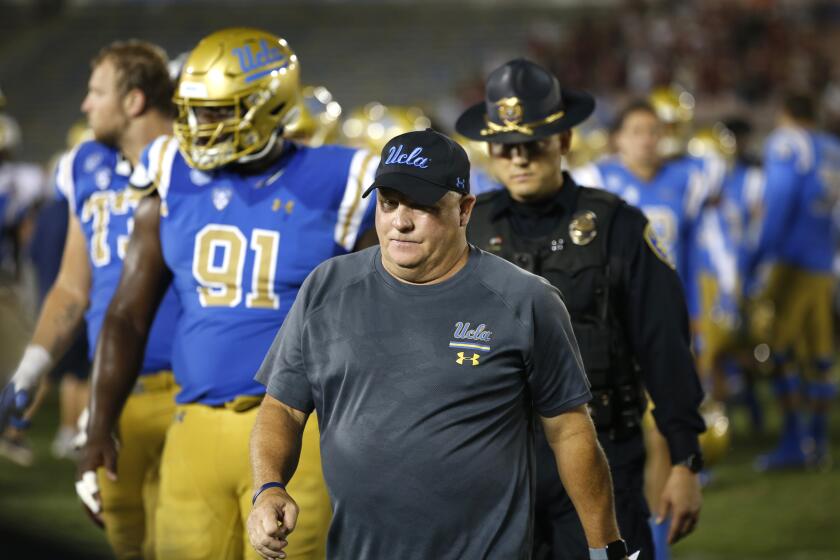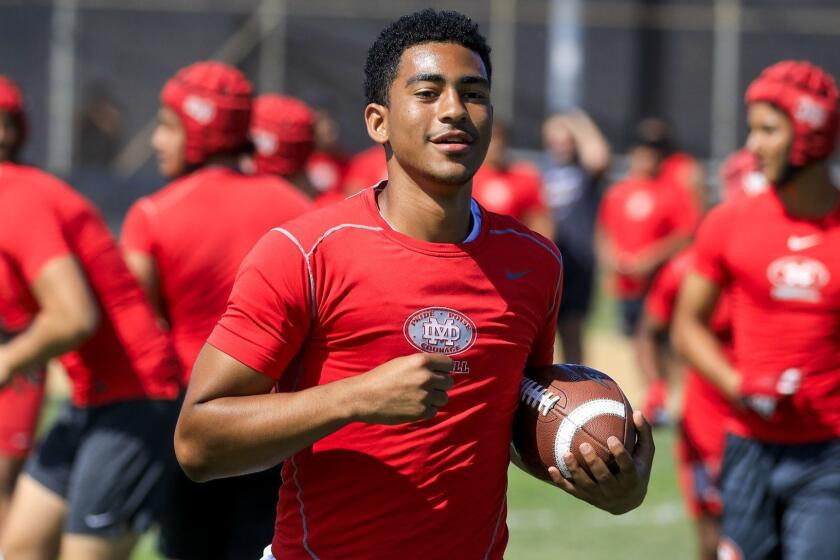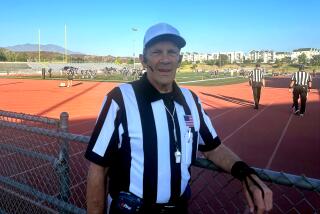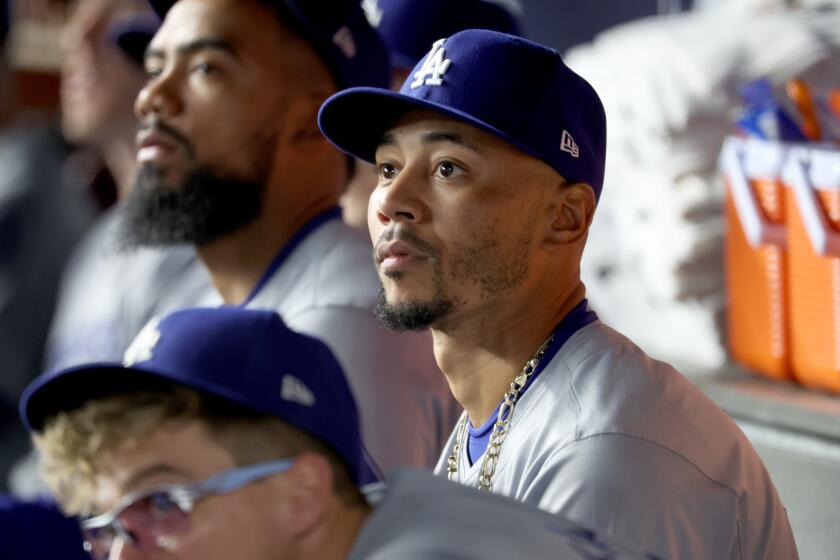Pac-12’s effort to rehab reputation of officials faces test in CFP championship game
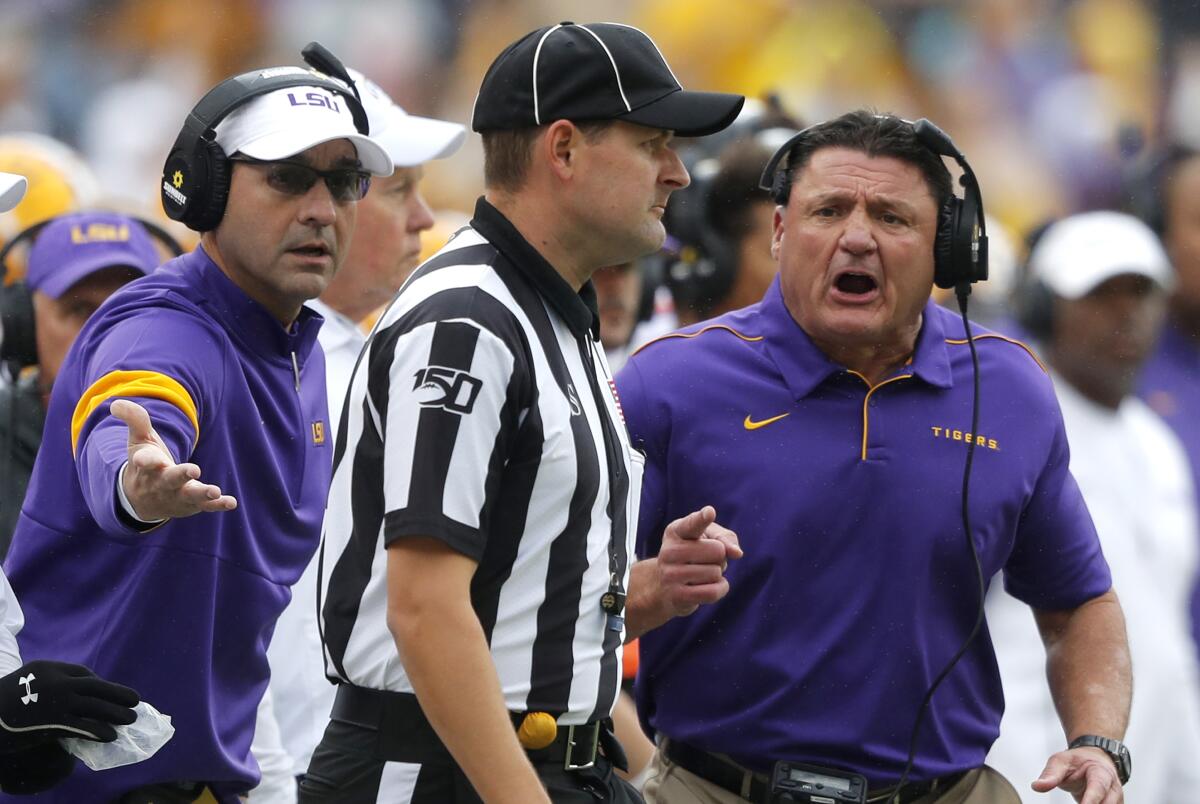
In his travels across the country, Fox Sports officiating analyst Mike Pereira has noticed two things.
Regardless of region, college football officials get lambasted everywhere: “If I’m in SEC territory, the SEC officials are getting blasted in the media. If I’m in ACC territory, the ACC guys are getting blasted. Same way in the Big Ten. Same way in the Big 12. Same way in the Pac-12.”
But no matter where he goes, the officials from one league get derided the most.
“The one noticeable difference to me,” Pereira said, “is the perception the Pac-12 [officials] are the worst.”
Unfair or not, unwarranted or not, this has become the reality for the Pac-12, which will supply the officiating crew for the College Football Playoff title game Monday night between No. 1 Louisiana State and No. 3 Clemson.
Pereira is among those who agree that the league’s overall officiating is on par with the rest of the nation. But one egregious error after another — ranging from on-field oversights to administrative mayhem — has eroded public confidence in the conference’s crews.
The UCLA football and men’s basketball teams have been struggling for years, and fans are beginning to lose hope the programs will ever resurrect past glories.
“I don’t consider them any better and I don’t consider them any worse,” said Pereira, a former NCAA and NFL referee who offers officiating commentary for Fox’s coverage of NFL and college games. “But the reputation is still out there. That’s hard to overcome.”
There was a time Pereira thought the Pac-12 had legitimate problems with its quality of officials.
Two years after retiring from his post as NFL’s vice president of officiating in 2009, Pereira was brought in by the conference (then the Pac-10) to revamp a program that, as he recalled, had failed to send an official to the NFL in almost a decade. He saw deficiencies in how the league’s officials were trained and how they used — or failed to fully utilize — technology, leading to a roster of crew members that needed a revamp.
The league’s athletic directors listened, enacting many of Pereira’s recommendations and having him replace 11 officials in March 2011.
“To the credit of the ADs, they said, ‘OK, we’ll devote the money to it,’ ” Pereira said, adding: “I had to make some unpopular phone calls … but it needed to be done. The program got better.”
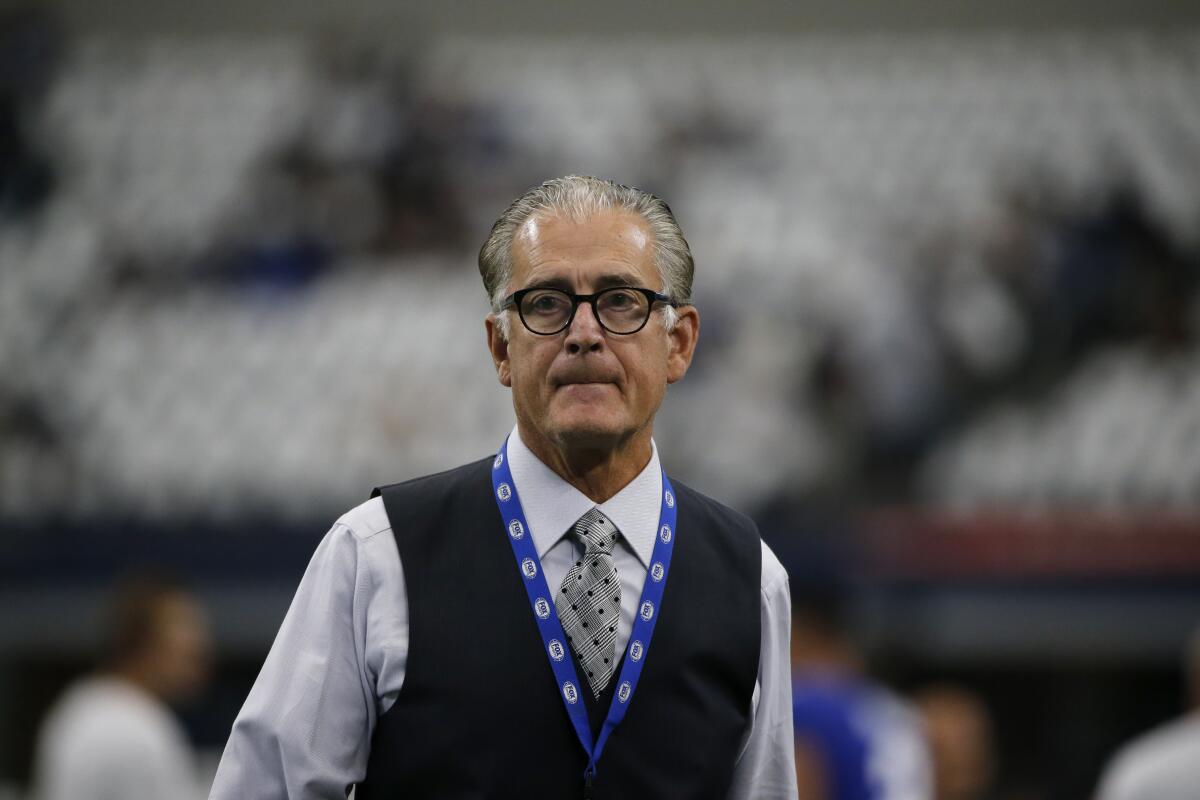
Any improvements on a game-by-game basis, however, have been often overshadowed by occasional controversies accompanied by national outrage.
This season, the league admitted to two crucial officiating mistakes: a missed penalty at the end of Arizona State’s win at Michigan State in September, which denied the Spartans a second chance to attempt a game-tying field goal; and a “mechanics error” during Washington State’s November loss to California in which a Bears penalty was accidentally marked off against the Cougars, costing Washington State 57 yards of field position and leading to a one-game suspension for the game’s head referee.
In September, then-interim Mississippi athletic director Keith Carter issued a statement that was critical of the league after a controversial ending to Cal’s win over the Rebels, which saw Pac-12 officials elect to not review a potential tying touchdown in the closing seconds.
In October 2018, the league came under heavy criticism after Woodie Dixon, a league administrator with no officiating training, influenced the video replay decision for a potential targeting penalty in a USC game against Washington State. That gaffe was centrally cited in a letter sent by three retired Pac-12 officials to the conference’s vice president for officiating, David Coleman, last March that was critical of the state of the league’s officiating.
“Last year brought their practices under intense scrutiny, as it should have,” said Mark Schultz, an editor for football officiating website FootballZebras.com, which has tracked the tumultuous recent history of Pac-12 officials.
Bryce Young enrolled at Alabama right as quarterback Tua Tagovailoa decided to leave for the NFL. Now Young will compete for a starting job as a freshman.
The conference — which declined interview requests for its officiating administrators — has tried to rehabilitate its reputation.
It enlisted Sibson Consulting this past offseason to perform a review of its officiating procedures and practices, leading to three key changes Commissioner Larry Scott announced at Pac-12 media day last July: a more independent structure that would allow Coleman more direct contact with Scott; a more detailed and codified replay review protocol; and enhancements to the way the conference graded officials and communicated questionable calls with the public.
“Perception is harder to change than reality,” said Bill LeMonnier, an officiating analyst for ESPN who will be a part of the title game coverage.
“You can do something about reality. A couple things that the Pac-12 did, I’ll give them credit. David Coleman and the conference commissioners, when that [Woodie Dixon] situation happened a year ago, I liked the way they took charge of the situation. They publicly came out and they’ve been very transparent about calls since then. I think they’ve taken a really positive stance trying to be transparent.”
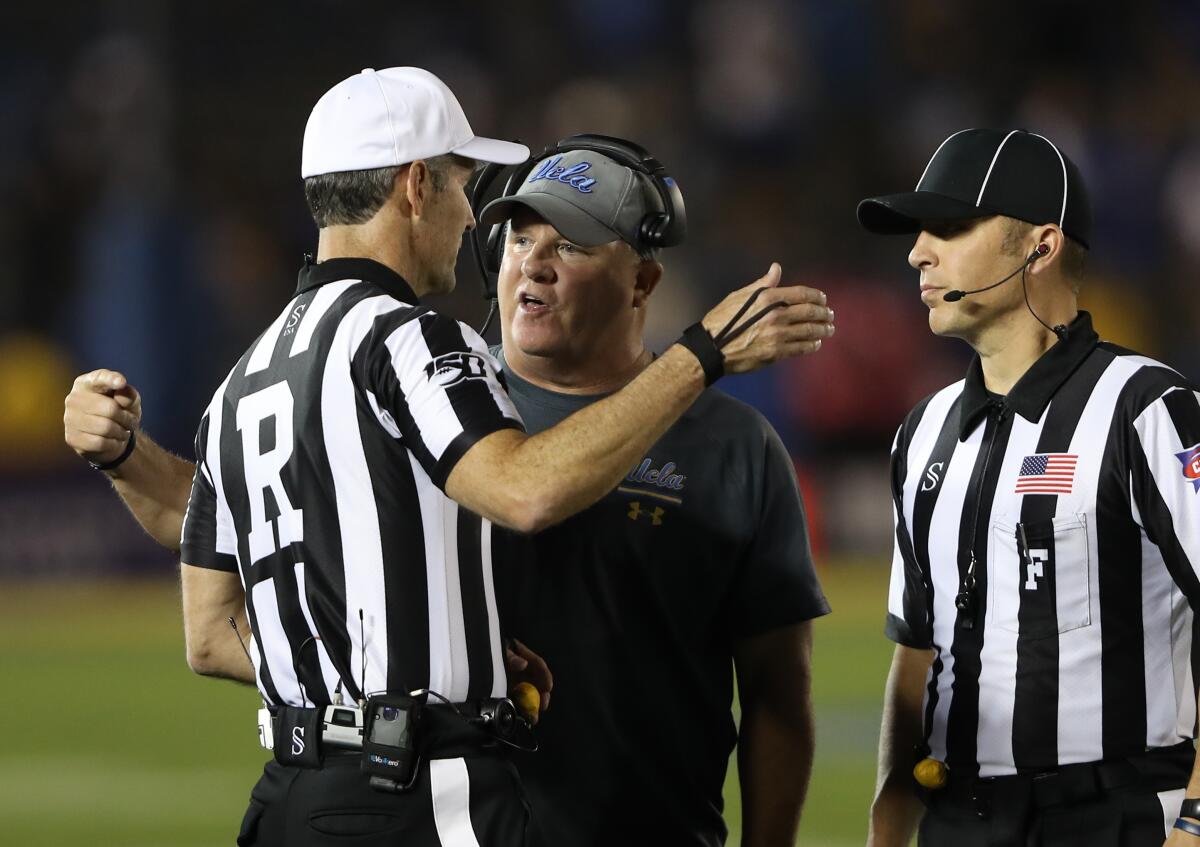
The head official reportedly tabbed for the championship game, Chris Coyte, who is considered one of the league’s best officials, has a history of disputed decisions. In the 2017 Belk Bowl, he controversially ejected a Kentucky player for improper contact with an official. In the 2015 Pinstripe Bowl, a potential game-tying field goal was ruled wide despite a photo later appearing to show it might have snuck inside the upright.
When other Pac-12 officials get tied up in similar 50-50 calls, Pereira said, rarely do they seem to get the benefit of the doubt.
“They take three steps forward and then something happens and it’s five steps backward,” Pereira added. “It’s tough.”
Pereira noted that, just like officials across the nation,Pac-12 referees largely get calls right. He praised the Terry Leyden-led crew that called a largely controversy-free national championship game in 2016 between Alabama and Clemson, the last time the league supplied officials for the game, and pointed out that an evolution to rules and use of replay have made the actual act of officiating harder for referees across the sport.
“Officiating has gone from an art to a science,” Pereira said. “I think games get over-officiated, and not for the good of the game. And that’s an administrative issue, not an on-the-field issue.”
But that hasn’t made the missed calls and major lapses any easier for fans to stomach. In many corners, the Pac-12’s officials have been stripped of trust. On Monday night, they’ll be under the most critical of microscopes.
“Pac-12 officiating lives on that precipice that if you do one thing bad,” Pereira said, “you get thrust back into the public perception that your officiating is not good.”
More to Read
Go beyond the scoreboard
Get the latest on L.A.'s teams in the daily Sports Report newsletter.
You may occasionally receive promotional content from the Los Angeles Times.

